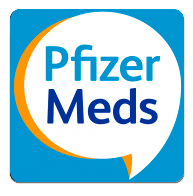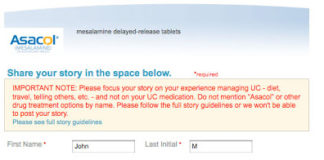 There are over 2,500 posts from various sources in the “Mobile Health and Pharma Applications” Forum. Most of these originate from POCKET.MD, which is the world’s “first and only free online service focused exclusively on providing the most comprehensive directory of mobile applications created by healthcare companies for medical professionals, patients, caregivers, and consumers.” POCKET.MD is created, owned, and operated by Fabio Gratton, aka @skypen on Twitter.
There are over 2,500 posts from various sources in the “Mobile Health and Pharma Applications” Forum. Most of these originate from POCKET.MD, which is the world’s “first and only free online service focused exclusively on providing the most comprehensive directory of mobile applications created by healthcare companies for medical professionals, patients, caregivers, and consumers.” POCKET.MD is created, owned, and operated by Fabio Gratton, aka @skypen on Twitter.
Every day I get notified of new posts about pharma apps. Today, for example, I learned of “Pfizer Meds for iPhone,” which is an app designed for people taking Pfizer prescription medications.
“By simply scanning or entering the barcode on your prescription medicine pack,” says the app description on iTunes (here), “you will be able to access helpful information about your medicine and/or medical condition.”
Other useful features include:
- Hear the name of your Pfizer prescription medicine and for some medicines, other helpful information
- Watch videos and read information that may help you understand how to correctly take or use your Pfizer prescription medicine and/or better understand your medical condition
- Set reminders to take your Pfizer prescription medicine as instructed by your doctor
- Keep a log of your Pfizer prescription medicines
- Access the current Consumer Medicine Information for your Pfizer prescription medicine
- Because apps are easy and inexpensive to develop by a geek-in-the-garage (read “Is This the Typical Mobile Health App Developer Hired by Pharma?“), local branches of pharma companies can afford to produce apps for their own markets. These may be viewed as “pilot studies” by headquarters, which may or may not sanction release in other markets. This is similar to how drug companies launch new drugs — launch in the U.S. usually comes after launch in other countries. But that leads me to the second possibility…
- Perhaps there are too regulatory obstacles to releasing health apps in the U.S. Some apps, for example, may be considered “Mobile Medical Apps” requiring FDA approval (read “FDA’s ‘Mobile Medical Apps’ Scope of Oversight Pyramid: Confusion Abounds“). This may be true for Pfizer Meds even though the description says the app “is not intended to diagnose, treat, cure, prevent or monitor any health condition and must not be used as a substitute for the medical advice of a qualified healthcare professional.
- Some apps may just not be technically suitable for the U.S. market. Pfizer Meds, for example, reads bard codes to access information about a particular drug. In the U.S., we usually don’t get meds in the manufacturers’ packaging and the bard codes on our prescription bottles may be specific for the pharmacy or PBM that distributes the meds at the consumer level.
Whatever the reason, it’s very frustrating to see so many pharma apps being developed for other countries and not for us in the U.S.! We pay the highest prices for our meds. Shouldn’t we at least have the extra value of free apps to support our use of those med?








![6 Digital Tools at the Center of Healthcare Digitalization [INFOGRAPHIC]](http://ec2-54-175-84-28.compute-1.amazonaws.com/pharma-mkting.com/wp-content/uploads/2021/04/6DigitalTools_600px-100x70.jpg)




